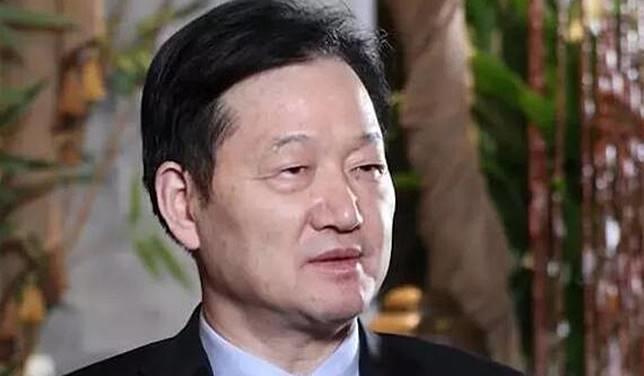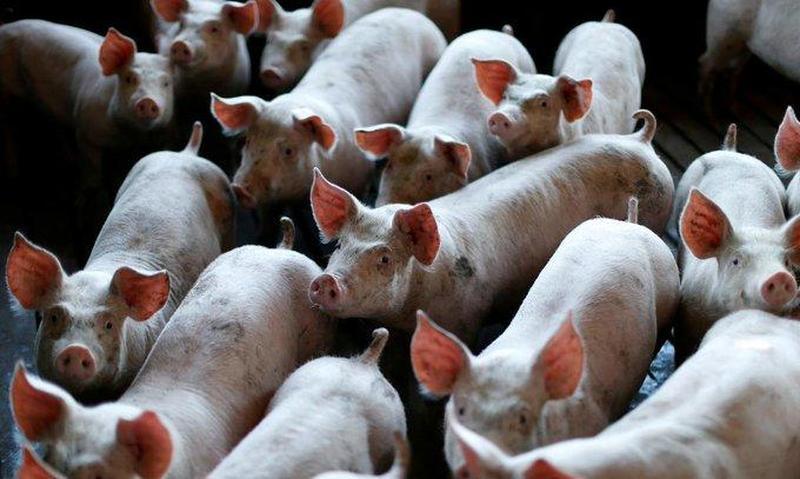Chinese Pork Billionaires Squealing All The Way To The Bank
With wholesale pork prices more than doubling in 2019 due to a deadly epidemic of African swine fever, a handful of Chinese pork peddlers are bringing home the bacon ham over fist, according to Bloomberg.

China’s top hog-hawker of late is Muyuan Foodstuff chairman Qin Yinglin, whose net worth has more than quadrupled this year to $8.6 billion thanks to his 60% stake in the company – making him the fastest growing individual on the Bloomberg Billionaires Index. Forbes has pegged Qin’s net worth at $16.6 billion. He holds the shares directly and with his wife through Muyuan Industrial Group.
After graduating from Henan Agricultural University with a degree in animal husbandry, Qin launched a hog breeding company with just 22 pigs – and now slaughters roughly 5 million per year as one of China’s premiere meat mavens.
Muyuan’s profit soard 260% in Q3 vs. the same period in 2018, due to the deaths of millions of pigs (some at the hands of criminal meat schemers) which caused the country’s pig herd to collapse 41% YoY, sending prices skyrocketing.
In order to avoid swine fever, for which there is no approved vaccine but doesn’t affect human health, Muyuan has been sterilizing animal feed with heat, filtering the air inside of their facilities, and disinfecting trucks, Qin told the South China Morning Post in March.
“Some companies are very much in difficulty because they are unable to reproduce their hog herd,” according to Fitch analyst Li Chen, “But some companies are seeing great profitability.”
Other pork profiteers include WH Group – the world’s largest pork producer, as well as pig breeder and animal-feed company New Hope Group – whose Chairman, Liu Yonghao, has seen his net worth balloon to $11 billion – nearly double what it was at the end of 2018.
“Swine fever brings both benefit and harm,” Qin told SCMP. “We need to ride this violent hurricane out and turn it into a superb opportunity for our development.”
As we noted in July, the rise in pork comes as prices for other meats – particularly chicken and duck – have risen substantially, as consumers turn to alternate proteins.
“The market prospects are very good now because of African swine fever,” said Shenghe Chairman Wang Shuhong, whose firm sells about 300,000 ducklings a day for fattening and slaughter.
Soaring duck prices, in turn, have pushed the price of chicken up more than 20% – affecting companies such as Yum China – the other of China’s dominant fast food brand KFC, according to SCMP.
“Poultry price has gone up because of African swine fever and the substitution away from pork to chicken. So the cost has gone up,” said Fred Hu, founder of Beijing-based global investment firm Primavera Capital Group, and non-executive chairman of Yum China.
The impact on the company that buys a billion chickens a year in China has been significant and “has definitely put up the pressures,” said Hu. He did not say how much the price hike had cost Yum China, which also runs China’s Pizza Hut.
In 2016, the brand spun off from global business Yum Brands and listed on the New York Stock Exchange. It was backed by Hu’s Primavera Capital Group, who invested US$410 million, and fintech company Ant Financial Services Group, who put in US$50 million. –SCMP
After 32 years in China, there are more than 6,000 KFC stores across more than 1,000 cities in China, employing more than 400,000 people.
Tyler Durden
Thu, 12/19/2019 – 23:45
via ZeroHedge News https://ift.tt/34G4jWo Tyler Durden
